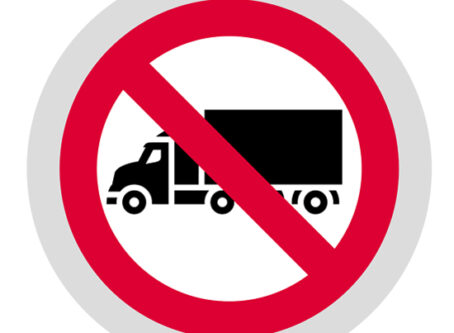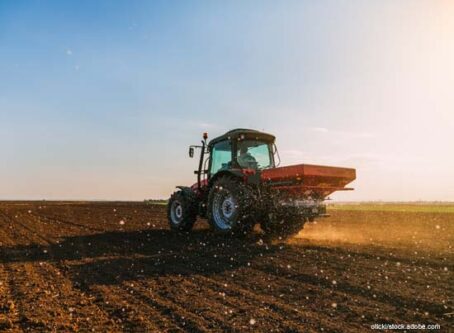Virginia transportation board approves I-81 Corridor Improvement Plan
With less than a year to conduct a study, administer 12 public meetings and come up with a plan, the Virginia Commonwealth Transportation Board has approved recommendations for the Interstate 81 Corridor Improvement Plan. Although details have not been released, one funding possibility includes a toll on trucks.
On Wednesday, Dec. 5, Virginia’s transportation board unanimously approved the I-81 Corridor Improvement Plan as mandated by legislation signed by the governor in April. The plan recommends which I-81 projects should take priority and how the projects will be funded. A final draft is expected to be published Dec. 21 and submitted to the General Assembly no later than Jan. 3.
Although details of what the board signed off on is still unknown, a presentation from the Department of Transportation given to the board the day before on Tuesday, Dec. 4, gives some insight on what will likely be included.
Tolling, taxes or both?
Controversy was focused less on spending money on I-81 corridor improvements and more on how to come up with that money. SB971 directs the board to recommend financing options. However, the board “shall not consider options that toll all users of Interstate 81, and shall not consider tolls on commuters using Interstate 81, but may consider high-occupancy toll lanes” and heavy commercial vehicles.
Research conducted by VDOT came up with two possible funding solutions: tolls and taxes.
The Alliance for Toll-Free Interstates sent Land Line the following statement:
“Imposing tolls on existing lanes on I-81 is fiscally irresponsible and would have many negative practical and economic impacts. Tolls will increase shipping costs for goods, suppress consumer activity, waste revenues on bureaucratic administration, double-tax businesses, divert traffic onto local roads, and negatively impact residents and communities located around toll facilities. Efforts to make tolling easier are simply efforts designed to hurt Virginia’s economic future and reroute prosperity around the western half of the commonwealth. Tolls represent wasteful spending motivated by wishful thinking, and we urge the Virginia General Assembly to reject tolls as a funding option for improving Interstate 81 in the upcoming legislative session.”
Despite legislation language suggesting a truck-only toll, VDOT found a more inclusive option for tolling in the I-80 corridor. If the board opts for the tolling option, trucks will be tolled at a rate of 15 cents per mile from 6 a.m. to 9 p.m. and 7.5 cents from 9 p.m. to 6 a.m. At most, the cost of driving the length of I-81 will run approximately $48.75 during the day and about $24.38 at night.
Passenger vehicles will not be completely off the hook. Commuters will have two options: pay tolls each trip or purchase an annual pass. Motorists who choose the annual pass will have unlimited access to I-81 for only $30 per year. Drivers without the pass will pay a toll rate of 7.5 cents per mile during the daytime and 5 cents per mile during nighttime.
Expected toll revenue is $145 million each year.
Possible new sales and fuel taxes
VDOT also suggested an alternative to tolling: a regional tax. More specifically, two new taxes will be installed to generate revenue to fund the I-81 project. The first tax would be a 0.7 percent retail sales and use tax. Another tax includes a regional fuel tax of 2.1 percent.
The sales tax could generate $105 million a year, while the fuel tax could pull in $60 million. Together, the regional tax option will generate $165 million in revenue, $20 million more than the tolling option.
The board has the freedom to choose a hybrid option as well. If the board found it more feasible, a combination of a toll and regional tax could be implemented. However, this third option is highly unlikely.
Findings related to trucking industry
Among the many I-80 corridor project recommendations, mostly consisting of widening the interstate, were some specific to truckers. In the Bristol district, three truck climbing lanes are suggested. Two truck climbing lanes are recommended in the Staunton district.
VDOT also estimated that annual vehicle hours of delay will be reduced by more than 6 million, with trucks capturing more than 3.6 million vehicle hours of annual delay reductions.
An economic impact analysis studied the effects specifically on Virginia trucks. “Virginia trucks” is defined as any truck that a) starts somewhere else and ends in Virginia b) starts and stops in Virginia or c) starts in Virginia and ends somewhere else. Essentially, any truck doing business in the state.
VDOT analyzed reduced transportation costs due to implementation of the plan and tolling cost. Reduced costs include:
- Reduced travel times.
- Reduced fuel and labor costs due to travel time savings.
- Reduces monetary costs due to fewer crashes.
The share of transportation costs reduction to truckers will total $3.42 billion. Factoring in truckers’ share of tolls at $2.3 billion, the trucking industry is projected to realize a net reduction in transportation costs of $1.12 billion dollars.
Not included in the recommendations to the board is a plan to establish a Truck Parking Task Force. Several on-going items did not make the cut since they required “external stakeholder” collaboration, which could not be completed within the short six-month time period. However, $100 million has been set aside for these items for consideration next year.
From here, the transportation will release a final report on Dec. 21 and submit that report to the General Assembly before the start of the next session that begins on Jan. 4. The report only determines which projects are considered most critical, but does not approve specific recommendations.
Regardless of what the board submits, the General Assembly will have the final say on what to fund in the I-80 corridor and if and how lawmakers decide to move forward at all.









